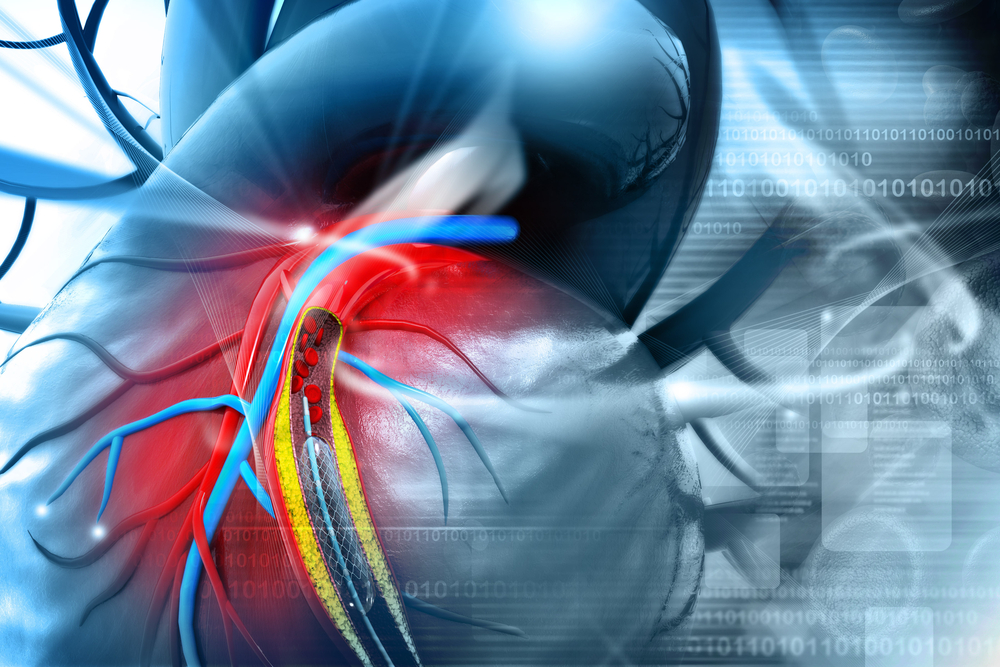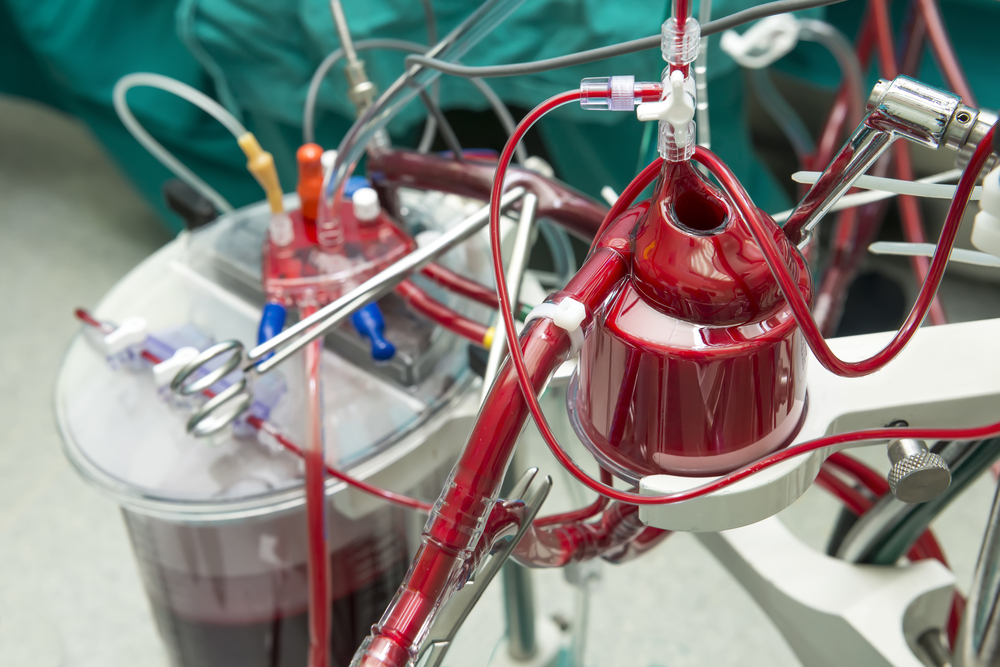
From Bypass to Brainpower: Understanding Digital Rehab Programs for Cardiac Cognitive Recovery
New research sheds light on the cognitive challenges faced by cardiology patients post-treatment and highlights the potential of digital tools in aiding cognitive rehabilitation.
Introduction: The Often Overlooked Cognitive Impact of Cardiac Events

Note: This article is intended for general information and educational purposes. It summarizes scientific research in accessible language for a broad audience and is not an official scientific press release.
Cardiovascular disease affects millions worldwide, and while physical rehabilitation is a well-recognized aspect of recovery, the cognitive effects of cardiac events often receive less attention. Patients who have experienced heart attacks, strokes, or related surgeries frequently face declines in cognitive functions, including memory, attention, and executive function. A recent study in the Russian Psychological Journal emphasizes the importance of addressing cognitive rehabilitation as part of a comprehensive approach to cardiac recovery, suggesting that digital rehabilitation tools can play a transformative role in helping patients regain cognitive health. Study participants used a variety of cognitive training programs, including CogniFit.
This article delves into the study’s findings, examining how a structured approach to cognitive rehabilitation can support improved mental agility, quality of life, and overall recovery for patients recovering from heart-related conditions.
Cognitive Deficits in Cardiac Patients: The Invisible Burden
While cardiovascular disease is associated with physical symptoms, it can also impact mental processes due to decreased blood flow to the brain, physical trauma, or prolonged periods of hospitalization. This can lead to several cognitive impairments that affect daily functioning and quality of life, including:
- Memory Deficits: Many cardiac patients experience trouble with short-term memory, making it difficult to manage medication schedules, recall appointments, and remember doctor’s instructions. This decline can lead to complications in self-care and adherence to treatment plans.
- Attention and Focus: Decreased attention span is a common symptom in patients recovering from heart conditions, impacting their ability to focus on tasks, engage in conversations, or even participate in rehabilitation exercises that are essential for recovery.
- Executive Function Decline: Skills such as planning, organization, and decision-making are often affected. This can prevent patients from effectively managing their treatment, making it more challenging to return to work or reintegrate into daily activities.
Addressing these cognitive challenges is critical for holistic recovery. By including cognitive rehabilitation as part of cardiac care, healthcare providers can help patients regain independence, improve adherence to treatment, and enhance their quality of life.
Key Findings from the Study: Cognitive Training as a Pathway to Recovery
The study followed cardiac patients with varying degrees of cognitive impairment and assessed the impact of consistent cognitive training on their recovery. Key findings from the research highlight the effectiveness of structured cognitive exercises in supporting mental health recovery:

- Improvements in Memory and Attention
One of the primary findings was that participants showed significant progress in memory retention and sustained attention. Memory improvement allowed patients to better manage daily routines, while increased attention made it easier to follow through with therapy sessions and maintain focus in everyday tasks. These enhancements are crucial for managing the self-care requirements that cardiac patients face after leaving the hospital. - Strengthened Executive Function
Another positive outcome was improvement in executive functions, particularly in planning and problem-solving skills. These functions are essential for managing medication schedules, organizing doctor’s appointments, and performing other daily tasks that require mental clarity and focus. As patients regained executive function, they reported feeling more capable of taking charge of their own recovery process. - Positive Impact on Mood and Motivation
Cognitive rehabilitation also showed positive effects on the patients’ mood and motivation levels. Participants reported feeling less frustrated and more confident as they began to see improvements in their cognitive abilities. This enhanced sense of self-efficacy is crucial for long-term adherence to rehabilitation programs and boosts the mental resilience required for full recovery. - Personalized and Adaptive Training Benefits
A unique feature of cognitive rehabilitation is the adaptability of the training. Programs that adjust difficulty based on the patient’s progress are more engaging and less intimidating for users, allowing patients to gradually challenge themselves without feeling overwhelmed. This tailored approach is key to sustained engagement, helping users feel a sense of accomplishment as they complete exercises designed to meet their specific needs. - Data-Driven Tracking and Progress Monitoring
Another highlight from the study was the benefit of having data-driven progress tracking for both patients and clinicians. This allows for real-time feedback on cognitive improvements, which can be used to adjust rehabilitation plans as needed. By tracking patients’ progress over time, clinicians can better understand the cognitive challenges each patient faces and modify rehabilitation programs for maximum effectiveness.
A Comparison: Traditional Rehabilitation Versus Digital Cognitive Tools
Cognitive rehabilitation traditionally involves in-person sessions with trained therapists who guide patients through exercises to improve memory, attention, and executive function. While effective, this approach can have limitations—namely, accessibility. Digital cognitive rehabilitation tools offer an alternative, allowing patients to train from home, on their own schedules, and at a personalized pace.
Another advantage of digital tools is the extensive data collection that occurs as patients engage in cognitive exercises. This data can reveal trends in cognitive improvement or decline that are harder to capture in traditional, episodic therapy settings. For clinicians, these insights are invaluable in tracking recovery over time and providing recommendations based on each patient’s specific needs.
Digital platforms also empower patients to take control of their cognitive health outside clinical settings, which can be particularly beneficial in cases where frequent visits to a rehabilitation center are not feasible. Patients can engage in consistent training, gradually increasing the intensity of exercises as they progress, which is a core feature of effective cognitive recovery.
Patient Experiences: Cognitive Training in Action
The study incorporated feedback from participants, offering insights into how cognitive training positively impacted their lives. Patients noted feeling a renewed sense of hope as they observed improvements in their memory, focus, and overall mental clarity. Many mentioned that the gamified approach of cognitive exercises made them more engaging and less clinical, which helped maintain motivation levels.

Participants expressed particular appreciation for the ability to monitor their progress. Seeing tangible improvements in cognitive function served as a strong motivator, helping them stay consistent with their rehabilitation. For many patients, cognitive training provided a sense of agency and independence, allowing them to regain control over their mental and emotional well-being post-treatment.
Implications for Cardiac Care and Broader Healthcare
The success of cognitive rehabilitation in cardiology patients has broader implications for other areas of healthcare. Cognitive health is increasingly understood to be an integral part of physical recovery, especially for conditions that involve physical trauma or extended hospitalization. As a result, cognitive rehabilitation may soon become a standard component of treatment in fields like neurology, physical therapy, and chronic disease management.
In particular, digital cognitive rehabilitation tools have shown promise as scalable solutions that can support mental health recovery across diverse patient populations. For individuals with limited access to in-person rehabilitation services, digital programs can bridge the gap, offering high-quality, personalized cognitive training from home.
Additionally, as healthcare systems place a greater focus on preventative care, cognitive rehabilitation tools could play a role in supporting long-term wellness. Patients recovering from cardiovascular events can potentially prevent further decline in cognitive health, contributing to a healthier lifestyle and reducing the risk of future medical interventions.
Conclusion: Cognitive Rehabilitation as a New Standard in Cardiac Recovery
This recent study underscores the need for cognitive rehabilitation in cardiac care. For patients recovering from cardiovascular events, cognitive deficits can hinder recovery and limit independence. Structured cognitive training provides a way to address these issues, allowing patients to rebuild essential skills like memory, attention, and executive function.
As digital rehabilitation platforms become more sophisticated, they offer a powerful complement to traditional therapy, with data-driven insights and personalized approaches that enhance the patient experience. Patients who engage in cognitive rehabilitation are better equipped to manage their health, maintain independence, and experience a higher quality of life.
The future of cardiac care may see cognitive rehabilitation integrated alongside physical recovery programs, marking a shift toward more comprehensive care. By incorporating cognitive health into treatment plans, healthcare providers can ensure that cardiac patients receive the support they need for a truly holistic recovery process.
Thus, the study highlights the significant role of cognitive training tools like CogniFit in supporting recovery for cardiac patients. Through structured, adaptive exercises, patients were able to improve essential cognitive functions, including memory and attention, while also benefiting from enhanced mood and motivation. This combination not only facilitates a return to daily activities but also fosters a sense of control and independence during recovery. Such tools prove valuable in making cognitive rehabilitation accessible and effective for patients outside traditional clinical settings.
Read Full Article Here.
The information in this article is provided for informational purposes only and is not medical advice. For medical advice, please consult your doctor.














